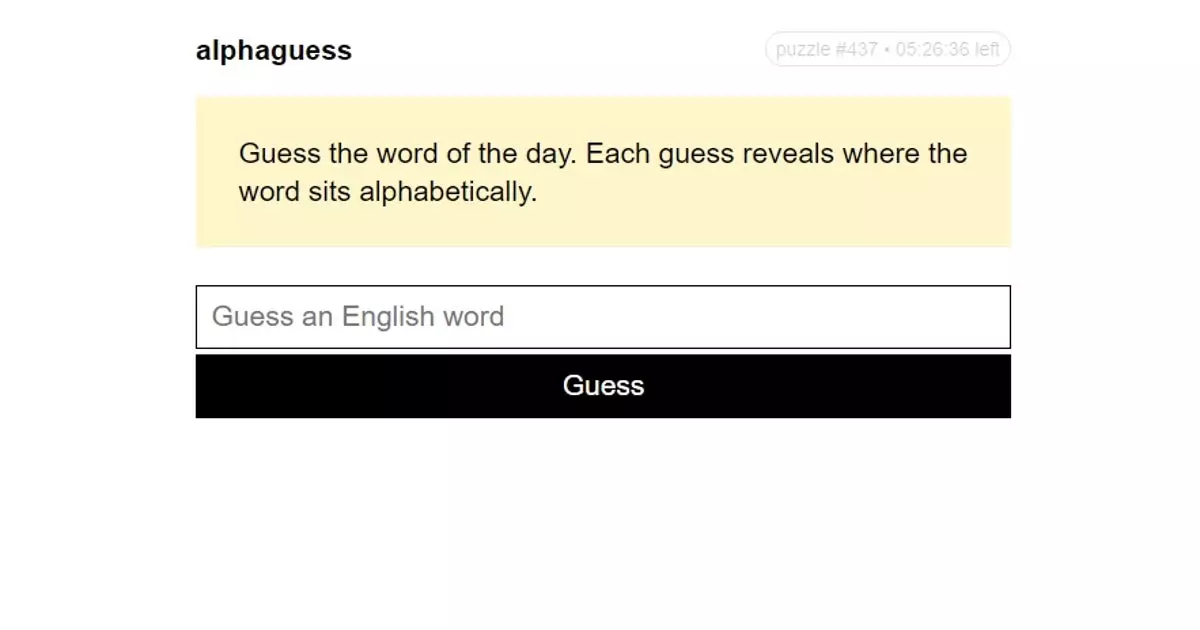In our increasingly busy lives, productivity is often seen as the golden standard for measuring success. Yet, amidst the clamor of deadlines and responsibilities, many find themselves losing focus. What fuels this decline in productivity? Enter the realm of daily puzzle games, like Alphaguess, positioned as harmless diversions but questioning whether they truly enhance or inhibit our efficiency.
One recent example, the browser game Alphaguess, challenges players to guess a hidden word through a series of alphabetical clues. On the surface, this game appears innocuous—a once-a-day brain teaser promising a brief escape from the mundane. However, enthusiasts may find themselves entangled in a labyrinth of guesses and cognitive overload. Is the joy of uncovering a word worth the time lost?
Puzzle games, ranging from crosswords to modern iterations like Alphaguess and Wordle, captivate countless players daily. However, labeling these games as mere “puzzles” overlooks their deeper implications. These games prompt not only logical thinking but often spark moments of frustration—especially when a single wrong answer leads to confusion about an array of possibilities that lie before you.
Alphaguess, in particular, lacks the lateral thinking one might associate with traditional puzzles. The underlying simplicity—guessing a word within a predetermined framework—can become a double-edged sword. While it might seem straightforward, it deceptively lures players into a repetitive cycle of trial and error, replicating the experience of guessing a friend’s thought of number between one and a thousand.
What many players may not realize is that the rush of finding the answer often masks the hours spent engaging in these games. The momentary satisfaction can create a psychological trick where players feel they have been productive, despite the reality that their time could have been allocated elsewhere.
On a personal note, achieving the correct answer after multiple attempts may produce an exhilarating sense of accomplishment, but it’s crucial to question: does this small victory substitute for genuine productivity? Or does it merely serve as a seductive distraction, drawing us away from our original tasks?
Perhaps the key lies in understanding the role of such games within our daily routines. While they may not be designed to bolster productivity, puzzle games can offer a breath of fresh air against the backdrop of our busy lives. They cultivate moments of engagement, fostering creativity in an otherwise rigid framework of responsibilities.
While the daily ritual of playing games like Alphaguess invites joy and challenge, one must tread carefully. Recognizing their duality—both as a refreshing escape and a potential productivity killer—allows players to make informed choices about their engagement. Balancing leisure and responsibility remains the ultimate goal, wherein puzzles can enrich our lives without eroding our productivity entirely.


Leave a Reply